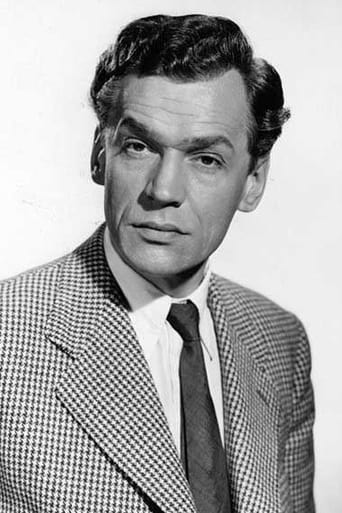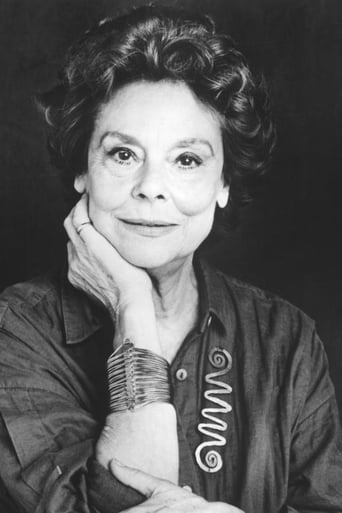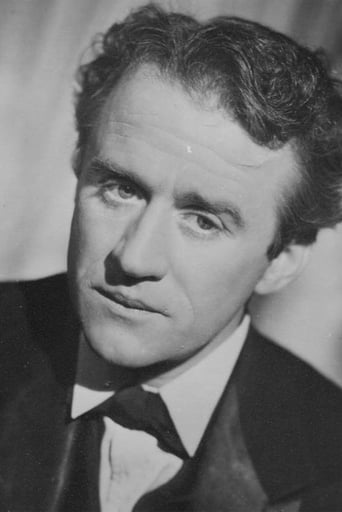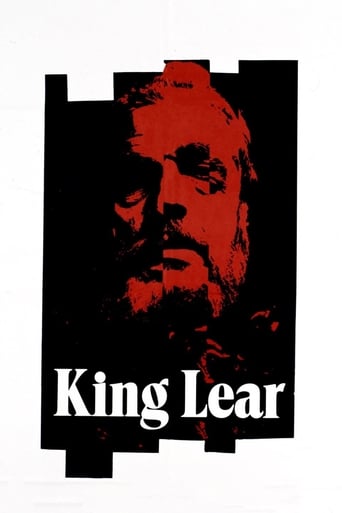
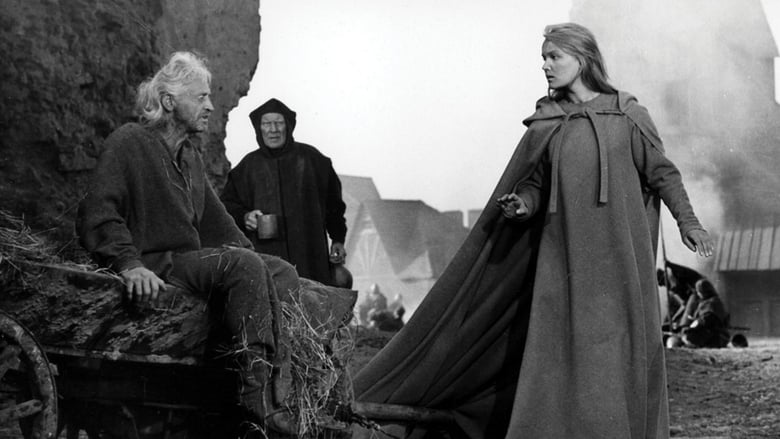
King Lear (1971)
King Lear, old and tired, divides his kingdom among his daughters, giving great importance to their protestations of love for him. When Cordelia, youngest and most honest, refuses to idly flatter the old man in return for favor, he banishes her and turns for support to his remaining daughters. But Goneril and Regan have no love for him and instead plot to take all his power from him. In a parallel, Lear's loyal courtier Gloucester favors his illegitimate son Edmund after being told lies about his faithful son Edgar. Madness and tragedy befall both ill-starred fathers.
Watch Trailer
Cast


Reviews
Peter Brook has the knack of making his stagings completely his own while at the same time enhancing the character of the play. Thus in "Carmen" he turns it into something of a chamber play, and here in King Lear he stresses the primitivism of the play turning into almost something like a documentary of the dark ages. In especially the first part including the storm he is entirely successful, in spite of the rather experimental expressionism,and the realism of the primitive middle age settings in a landscape of only moors and snows, not a tree in the whole film, is effectively impressing. The actors are superb throughout, and Paul Scofield renders a very interesting interpretation of the old man losing himself with occasional magnificent outbursts of powerful rage. The play is shortened, of course, you can't put all of a Shakespeare play into a film, (I believe the only successful attempt at that was Kenneth Branagh's "Hamlet" and very commendable as such,) while here the text abbreviations unfortunately suffer, the cuts being so obvious. Another flaw is that the articulation is not very good - it was fashionable in the end of the 60s to allow actors to talk on stage like as if they talked naturally, but theatre can't do without rhetoric; and especially with a language like this, which is the very essence of the play, you can't trifle with it, every word has to be pronounced distinctly, or it isn't Shakespeare. Towards the end the direction gets more sloppy, the intensity loses its grip, while the apocalyptic battle scenes crown the direction. The austere scenery throughout I believe will be what you most will remember of this film adaptation, which couldn't be more impressive, while I think I would prefer the Russian version from about the same time as more convincingly Shakespearian. Since many years I have been waiting for an opportunity to see the Laurence Olivier version from 1983.
What makes Shakespeare such a classic production is the talented actors like Paul Scofield C.B.E., C.H. and Irene Worth Honorary C.B.E. in their roles as King Lear and Goneril. I saw Irene Worth on Broadway in Lost in Yonkers but that was nothing compared to her role as Goneril. You forget the other actresses who play Cordelia and Regan. Her role of Goneril is chilling, complicated, icy, yet divine to watch. She really packs punches into this supporting role. Why Paul Scofield and Irene Worth were not nominated for Academy Awards is a shame because this film really works with the both of them in these roles. I can't imagine a better Goneril or a King Lear. The film was edited for the obvious reasons that all of Shakespeare's language cannot be used effectively but Peter Brook is a genius in knowing what Shakespeare would have wanted in this film. Peter Book C.B.E., C.H. is a Shakespeare expert and well-respected and beloved British director. He has done a remarkable job in bringing King Lear to life with a master such as Paul Scofield and Irene Worth's Goneril is absolutely divine! You can't take your eyes off her in this role.
Ah, now for my 100th review, chalked up after roughly four years of semi-regular sly-winking IMDb usury... What better for the "occasion" than a controversial adaptation of perhaps William Shakespeare's finest tragedy?I watched this as part of my degree work on Shakespeare; I decided to focus on Shakespeare films, tracked down as many as I could and watched a good few. This was the first I viewed, and can I emphasise how contrasting a view of "Lear" it is as compared to Kurosawa's "Ran"? Whereas that film is wilfully expansive and an epic, if not a history, Brook's "King Lear" is a pared down, Beckettian film visualisation of the play. There are very few backgrounds, characters' faces frame so many shots, creating a claustrophobic focus. The interiors that there are are bleak, barren, less than inviting places; there is no sense of a royal grandeur (unlike "Ran") from which Lear falls. Lear himself is played as an unfeeling, almost robotically callous chap early on, with Scofield delivering the lines in a very restrained, unexpressive way. This is far from the passionate, headstrong character of most performances. He is a husk of a man, and a dulling bully of a monarch, shown by the naturalistic, unbalanced violence he displays when in Goneril's castle. The feeling of Lear, later on in the play as genuinely a "fond" as well as "foolish" man, is downplayed deliberately. Again, the delivery of Shakespeare's poetry is muted. He comes across as perhaps too restrained and passionless in the later stages. The shift from power to impotence is however excellently conveyed during the storm scene, as first we see a shot of Lear from below, which then shifts quickly to one from a bird eye's view Lear has been shown first as in control and central and then rendered a mere insignificant human being, with no control over anything. Scofield however, does do very well, carrying out this very distanced, disquieting Lear of Brook's instruction, to the letter.Other actors impress, and are much as restrained; there is little or no actorly show here, the emphasis is on Beckettian delivery of lines, paring down the expression to suggest the futility of expression; words as a mechanical act churned out by humanity, making no difference in a barren, Godless universe. Brook uses Beckett's adage: 'There is nothing to express, nothing with which to express, nothing from which to express together with the obligation to express'. One can well say this is a reductive reading of Shakespeare, but it is spectacularly successful at its perhaps narrow aim. There are countless grounds in Shakespeare's Lear from which such an interpretation is born the play on 'nothing' 'Nothing will come of nothing' and the example of Cordelia's death, which suggest a Godless, reasonless world in its arbitrariness.Visually, Jack MacGowran and Patrick Magee, notable Beckett actors, make strong impressions, like Scofield, even if their parts are smaller. Susan Engel and Irene Worth are excellent and look just right as Regan and Goneril respectively, whereas a particularly downplayed Cordelia doesn't make much impression - the Christ-like element is absolutely not dwelt upon here, predictably, for what is a nihilistic interpretation. Peter Brook's film could perhaps be argued to take place in the Dark Ages, but Brook is clearly interpreting the play in a universally, timeless Beckettian sense. One could liken the film's austerity to the Swedish writer-director Ingmar Bergman, but this film is certainly pared down in terms of setting and costume when compared with 'The Virgin Spring' or 'The Seventh Seal'. Brook's approach to Shakespeare shares none of the solace that Bergman finds in humanity in 'The Seventh Seal' with Max von Sydow's Knight's sublime moments with the couple of players. Brook's world-view is clearly informed by the Jan Kott school of Shakespeare criticism; the natural world is a reflection of the human one. Both spheres are bleak and hopeless, as marked by the indiscriminate, desolate Northern landscapes and the equally random acts of cruelty and violence perpetrated by the characters. A complete lack of incidental music suggests Brook is trying not to distract the viewer in any way from the effect he is trying to create. It has been argued this interpretation is reductive to the play's language, and single-mindedly closes off many avenues in the play Kingship, courtly manners and politics are but a few concerns that are neglected by Brook. Brook's film continually attempts to alienate the viewer, with jarring, incessantly restive camera movement and unorthodox angles. The moment of Gloucester's blinding sees Brook metaphorically blind the viewer to the action by having the screen blank; a Brechtian distancing technique, exposing the artifice of cinema and the subjective power the director has. Brook opts to make the play's usual climax point the Edmund-Edgar duel deliberately anti-climatic. He undercuts any heroism on Edgar's part by making the fight short and brutish, devoid of any skill whatsoever Edgar arbitrarily wins. Likewise, the fates of Goneril and Regan are dispatched with a hurried violence. This 'Lear' ends inconclusively with no hope for the future it does not end directly with Edgar's 'The weight of this sad time' speech, but with the shot of Lear's head tilting back, gradually out of sight against a completely white sky. This expression of emptiness both that Lear is going neither to Heaven or Hell and that things are not likely to get any better or worse. A very impressive film, that certainly has divided critics. While the "ultimate" film "Lear" may not have been made yet (at least from the ones I have seen), this is a brilliant, bleak, Beckett-informed version. A powerful, wonderfully alienating and stark Shakespeare.
Easily one of my favorite movies of all time, Peter Brook's King Lear demands that you think, and will disturb you because you are alive and will one day (statistically speaking) be an old, foolish, feeble, mistake-laden human. Comment to the angles and lighting and all the things that seem to consistently disturb viewers: place yourself in the mind of a slowly ebbing ego, driven to rage over confusion and denied shame--an old man of four score and not a day more, in love with his youngest daughter, living his final days having denied and banished her... of course you are never going to see someone clearly, steadily, squarely, or in the same screen area. This masterfully bleak representation of one of Shakespeare's more difficult plays is unjustly in moratorium. I have shown it to many of my classes and will continue until the tape is worn with holes. Brook's treatment of Edgar is so haunting, so perfect, if you leave this feeling empty and lost, bravo! He who scoffs at their first viewing of this film is simply not watching the film, but is watching their expectations dashed on the wall.


